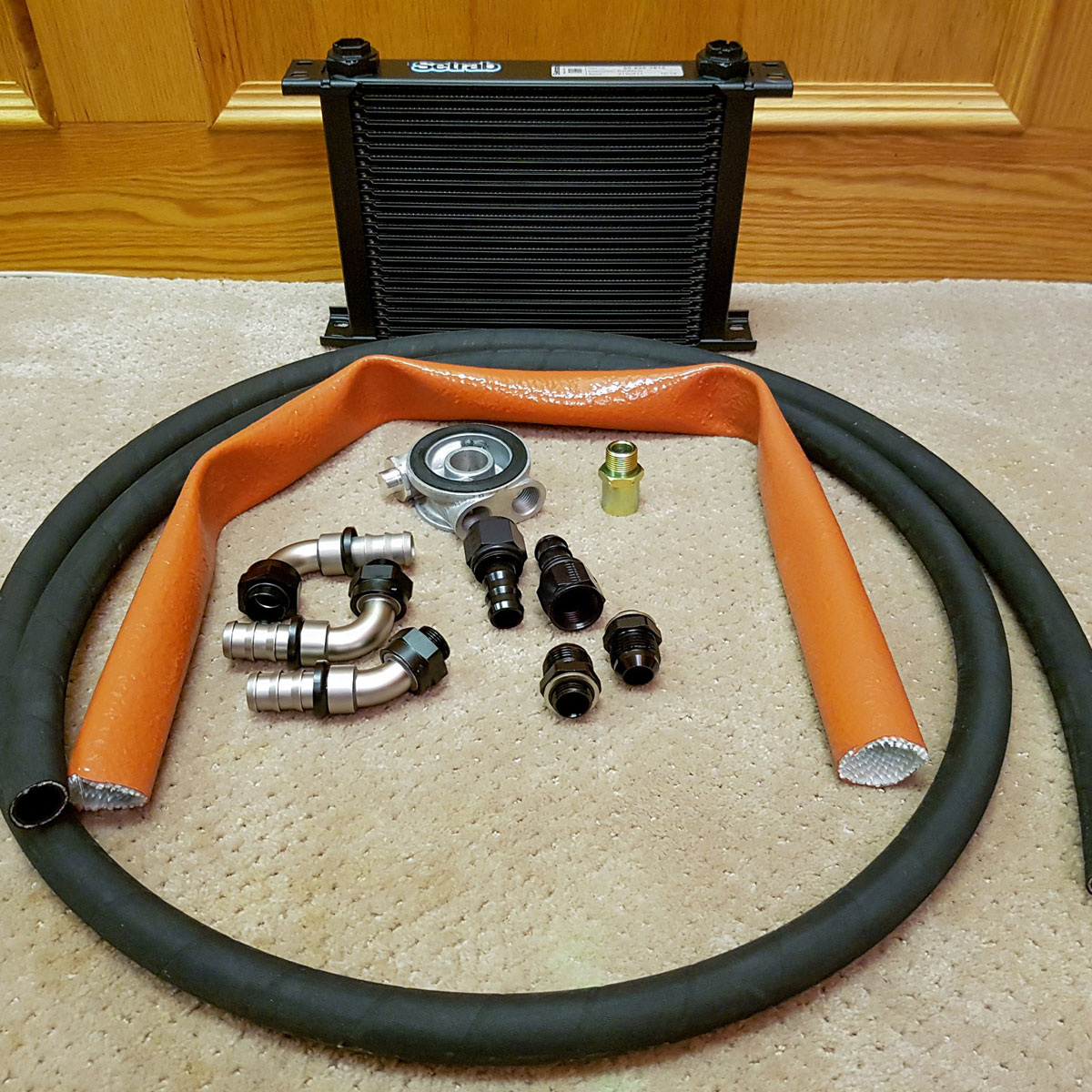A Calm Sentinel: Grasping the Value of Lubricant Heat Exchangers

Within the world of automotive engineering, many various components that enhance the performance and longevity of a vehicle. Included in this is the oil cooler, that often goes unnoticed, yet it plays a crucial role in maintaining the health of an engine. As cars have advanced in power and efficiency, so too has the need for efficient temperature management. The oil cooler acts as a silent guardian, guaranteeing that the engine oil remains at optimal temperatures, allowing for better lubrication and minimizing wear.
Grasping the importance of oil coolers is crucial for every car enthusiast or owner. When the engine runs, it generates a significant amount of heat, which can degrade the oil and result in elevated friction and damage. A well-functioning oil cooler helps to dissipate this heat, keeping the oil at a consistent temperature and enabling the engine to perform effectively. Whether it's in high-performance vehicles or daily drivers, the oil cooler is a crucial component that should never be overlooked in conversations about engine health and vehicle maintenance.
What’s an Oil Cooler?
An oil cooler is an critical component in automotive lubrication systems, intended to keep optimal oil temperatures within the engine. By dissipating excess heat from engine oil, the oil cooler assists prevent overheating, that can lead to reduced performance and potentially engine damage. This component has a vital role in ensuring the longevity and efficiency of an engine, particularly in high-performance and heavy-duty vehicles.
Typically, a oil cooler operates similarly to the radiator, using air or coolant to carry heat away from the oil. As oil circulates through an cooler, it passes through a series of channels or tubes that facilitate heat exchange. Depending on the design, the cooler may be mounted in various locations, including close to a radiator or integrated into the engine block, allowing for enhanced cooling as air flows over it.
Without an effective oil cooler, the engine's oil can reach dangerously high temperatures, leading to thermal breakdown and loss of lubricating properties. Such a situation not only affects engine performance but also increases wear on internal components, potentially resulting in costly repairs. Thus, comprehending the function and significance of an oil cooler is essential for maintaining a vehicle's health and performance.
How Oil Coolers Work
Oil coolers operate by effectively transferring heat away from the engine oil, ensuring it operates within the optimal temperature range. When the engine operates, the oil absorbs heat from different components, such as the engine block and the transmission. This heat can lead the oil to break down, reducing its effectiveness in lubricating and protecting engine parts. The oil cooler helps prevent excessive heat by circulating the oil through a heat exchanger, where it can cool down prior to returning to the engine.
The basic concept behind an oil cooler is similar to that of a radiator. Engine oil is pumped into the cooler, typically is usually located in front of the vehicle’s radiator or close to other cooling systems. The cooler has fins or tubes that increase the surface area, allowing air to pass over it in a more efficiently. As the hot oil flows through, it conducts heat to the cooler's surface, and this heat is then removed by the airflow generated as the vehicle is in motion or by an auxiliary fan when necessary.

Once the oil has shed its extra heat, it returns to the engine cooler and with improved viscosity and better lubrication properties. holden barina oil cooler enhances engine performance but also contributes to longevity, as it helps prevent damage resulting by high temperatures. Proper maintenance of the oil cooler is crucial for ensuring that the cooling system functions effectively, further emphasizing its role as a silent guardian of engine health.
Benefits of Employing Oil Coolers
One of the main benefits of employing oil coolers is the improved engine performance they deliver. By maintaining optimal oil temperature, oil coolers aid ensure that the oil can effectively lubricate and protect motor components. When oil is maintained cool, it remains at a viscosity that allows it to move smoothly and provide optimal protection against deterioration. This leads to synchronized engine operation, enhanced fuel efficiency, and ultimately a extended lifespan for the engine.
Another significant advantage of oil coolers is their role in preventing overheating. Engines produce a large amount of heat during operation, and without sufficient cooling measures, this heat can lead to serious damage. Oil coolers remove heat away from the oil, lowering the risk of overheating and the potential for catastrophic engine failure. By properly managing temperature, oil coolers can safeguard against expensive repairs and maintain the dependability of the vehicle.
Moreover, oil coolers aid to better overall vehicle efficiency by boosting oil performance. When the oil temperature is monitored, it remains effective in carrying out its crucial functions such as cleaning, chilling, and sealing. This efficiency not only improve engine performance but can also lead to increased fuel economy. In the future, investing in an oil cooler can be financially beneficial, as it improves both the longevity of the engine and the economic viability of operating the vehicle.
